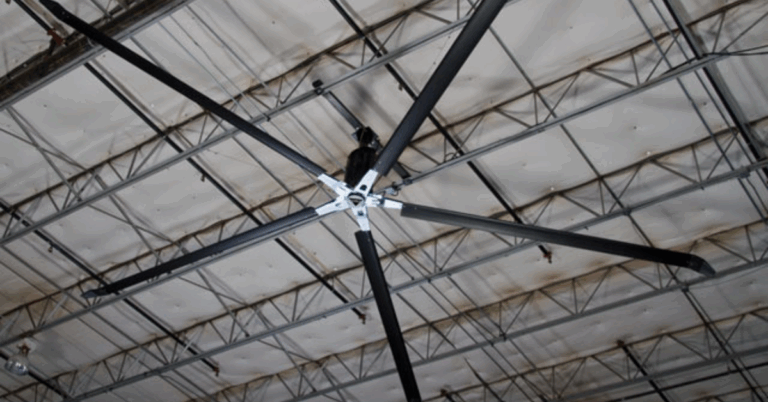Can I get notarization for an I-9 form?
The process of completing the I-9 form involves verifying both identity and work authorization for employment in the United States. Many employers and employees wonder whether they can have this crucial document notarized, especially when working remotely or on short notice. A Mobile Notary can bring the notarization process to your doorstep, eliminating the need for in-office appointments and scheduling conflicts. In this comprehensive guide, we’ll explore the legal requirements for I-9 notarization, compare service options, and offer practical tips to ensure your verification goes smoothly.
Understanding the I-9 Form and Notarization Essentials
While the I-9 form itself does not mandate notarization, certain employers may require a notarial acknowledgment to attest to the identity documents presented by the employee. In some states or for specific remote hiring situations, adding a Hospital Notary Service acknowledgment can enhance compliance and provide peace of mind, especially when onboarding medical or healthcare staff who present documents from a hospital setting. Knowing the legal framework governing I-9 completion will help you choose the right approach for your circumstances.
Before seeking notarization, employers should confirm whether their internal policies or state regulations call for notarized identity verifications. The U.S. Citizenship and Immigration Services (USCIS) does not generally require notarization for an I-9, but external auditors, remote HR teams, or specialized industries—such as legal firms or hospitals—sometimes add this layer of security.
Key Document Requirements
-
Section 1: Employee completes personal information; no notarization required.
-
Section 2: Employer reviews identity and work authorization documents—here’s where a notary can attest to the authenticity of presented IDs.
-
Section 3: Reverification or rehire follow-up; notarization is optional but recognized in some compliance frameworks.
Choosing the Right Notary Service
When you decide to add notarization to your I-9 process, several service options are available: traditional offices, remote online notarization (where permitted), or in-person at specialized venues. A Jail Notary Service may seem unusual for I-9 forms, but correctional facilities often require employment verifications for staff and vendors alike. Understanding each option’s pros and cons ensures you select the most efficient solution for your team.
Traditional Notary Offices
-
Fixed business hours
-
Potential wait times
-
Requires employee travel
Remote Online Notarization
-
Virtual identity proofing
-
Fast turnaround
-
Legal only in jurisdictions that permit RON
In-Person Venue-Based Services
-
Correctional facilities, hospitals, airports
-
On-site convenience
Factors to Consider
-
Convenience: Does your team require home visits or can they travel?
-
Availability: Are non-standard hours critical (nights, weekends)?
-
Compliance: Does your industry demand specialized venue credentials?
Leveraging technology and specialized services will streamline your I-9 notarization, reduce delays, and maintain full compliance with hiring regulations.
Navigating Venue-Based Notarization Options
In certain scenarios—such as urgent travel or late arrivals—employers and employees may need more flexible solutions. Emergency Notary Services provide 24/7 availability for last-minute document signings, ensuring your new hires can complete Section 2 without delaying their start date. Knowing when and how to use these accelerated services can make the difference between a smooth onboarding experience and unnecessary compliance headaches.
Emergency Notary Services
-
Available nights and weekends
-
On-demand travel to any location
-
Ideal for last-minute hires
Remote Online Notarization (RON)
-
Legally recognized in many states
-
Video conferencing to verify identity
-
Digitally notarized documents
Traditional Walk-In Notary Offices
-
Standard business hours
-
May require appointments
-
Limited geographic reach
Comparing Costs and Response Times
| Service Type | Average Fee | Typical Response Time | Best Use Case |
|---|---|---|---|
| Emergency Notary Services | $75–$150 | Within 1–2 hours | Urgent, off-hours notarizations |
| Remote Online Notarization | $25–$50 | 10–30 minutes per session | Virtual teams, long-distance hires |
| Walk-In Notary Offices | $5–$20 | Depends on wait times | Routine notarizations |
Ensuring your I-9 form is properly notarized—or confirming that notarization is permissible—will save time and prevent costly errors down the line.
Utilizing Airport Notary Services for Last-Minute Notarization
When new hires are traveling for work, ticking off I-9 verification before departure is essential. Airport Notary Services cater specifically to business travelers, offering quick, on-site notarizations at major terminals. With pre-booked appointments, employees can complete the I-9 notarization process during layovers or before boarding, ensuring compliance without interrupting travel schedules.
Advantages of Airport Notary Services
-
Located inside or near terminals
-
Extended hours aligned with flight schedules
-
Perfect for traveling consultants, remote employees, and corporate roadshows
Booking Tips
-
Reserve your slot at least 24 hours before travel.
-
Verify terminal access and notary booth location.
-
Prepare physical identity documents and I-9 form in advance.
Service providers often partner with airlines or airport authorities to offer seamless integration for corporate clients. If your company regularly sends employees on cross-country or international assignments, airport notaries are a valuable resource.
Preparing for Your Notarization Appointment
Whether you choose a mobile, hospital, jail, emergency, or airport notary, preparation is key. Assemble the following items before your appointment to ensure a smooth experience:
-
Valid U.S. passport, state ID, or driver’s license
-
I-9 form with Sections 1 and 2 ready for review
-
Any additional employment authorization documents (e.g., permanent resident card)
-
Employer authorization letter, if required by venue (especially in hospitals or correctional facilities)
-
Payment method for notary fees
When scheduling, confirm the specific requirements of your chosen service. For instance, hospitals may insist on masking and credential checks, while correctional facilities require background information for jail notaries. Communicate clearly with the notary to avoid surprises on the appointment day.
Ensuring Compliance and Avoiding Common Pitfalls
Mistakes in I-9 completion can lead to hefty fines—up to $2,292 per form for paperwork violations. To reduce risk:
-
Double-check that all sections are signed and dated correctly.
-
Ensure the notary’s seal and signature appear on the acknowledgment line.
-
Retain a copy of the notarized I-9 in your records; USCIS may request it during audits.
-
Review state-specific notarization laws; some states prohibit notarizing federal documents, so a local legal review may be necessary.
-
Consider periodic I-9 audits to catch errors early and train HR staff on compliance best practices.
By selecting the right notary service and following these guidelines, employers can maintain an efficient onboarding process while safeguarding against compliance issues.
Conclusion
Notarizing an I-9 form isn’t a universal requirement, but it can add a valuable layer of verification for remote hires, specialized industries, and high-risk environments. From Mobile Notary visits to Hospital Notary Service acknowledgments, Jail Notary Service attestations, Emergency Notary Services for around-the-clock needs, and Airport Notary Services for traveling employees, a variety of options exist to suit every scenario. Understanding your compliance obligations and preparing thoroughly will ensure a flawless notarization process that keeps your workforce and your company protected.







